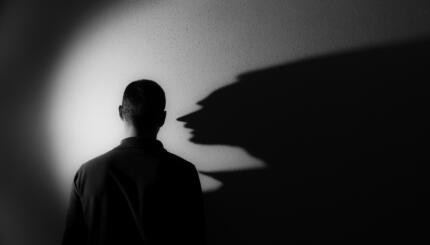In the past year, we have witnessed deep upheaval and uprising throughout the world. As we enter Yom Kippur, the earth is crying out to us with hurricanes, earthquakes and 85-degree September days in Boston. People of color and allies are standing in the streets and kneeling on the field. Transgender people of color and trans youth are being killed. Rohingya are fleeing Myanmar, and the refugee crisis persists. Clean drinking water is still not available in Flint and other places in the world. Indigenous communities continue to resist colonizers’ claims to their land and its valuable resources. Humanity is crying out from all corners of the world. The cries—coming in the form of pictures and videos instantly available via social media, text messages, and news articles—are overwhelming. Like the sound of the shofar, these cries break open our hearts.
Leviticus 23:27 states: “The Day of Atonement [is] a holy convocation [mikra]…on which you shall afflict [ve-’initem] your soul.” The Orah Le-Hayyim, a Hasidic work, understands ve-initem (to afflict) as ve-anitem (to respond). It teaches that “on Yom Kippur you should raise the voice of your soul and call it out aloud (Green, Speaking Torah, 180).” How do we do this? How do we raise the voice of our souls and call out?
This year, Yom Kippur, called Shabbaton—the Sabbath of all Sabbaths, will occur on Shabbat. The will not be sounded. There will only be the sound of our voices: the sound of the acknowledgement and confession of the sins of our community. Before these moments, some will say:
Our G-d and G-d of our ancestors, we are neither so insolent nor obstinate as to claim in Your presence that we are righteous, without sin;…What are we? What is our life? Our goodness? Our righteousness? Our achievement? Our power? Our victories?
The “Al Chet” and “Ashamnu”, both confessional prayers, enumerate the ways in which we have broken our covenant with the divine, and in doing so, have broken our covenant with each other. They are also a set of truths that we need to hear.
Each time I staff a Keshet LGBTQ and Ally Teen Shabbaton, my heart is broken open by the ways in which we are able to build a community that acknowledges the joys of our existence as LGBTQ Jews and the pain that runs through our complex identities. The moment of tears comes when we gather together to chant the words, “I will believe my truth no matter how beautiful it is.” These words are repeated over and over again, first out loud, then whispered, then out loud again. Over the whisper, we witness the speaking aloud of our beautiful truths, the pieces of ourselves that we keep hidden. We witness the speaking aloud of the pieces that separate us from the world and that, in those moments, draw us closer together to each other because we have built a community that can hold both the beauty and the brokenness of the world around us.
It takes courage for the Shabbaton community to confront these truths, and each truth that is shared is in part our collective truth. It takes humility to listen to each other and to be fully present in the moment. It is hard to acknowledge that we are fragile. To raise the voice of our souls, we must cultivate humility, acknowledge our own fragility, and listen.
This Yom Kippur, how will we know if we have succeeded in raising the voice of our souls? We might be moved to tears or to silence. We might find that we are drawn to listening rather than participating in one of the communal confessionals. We might have a different experience of Yom Kippur than we have ever had before. We may feel lighter, having uplifted our souls and the souls of those around us. And we may not know.
Whether or not we succeed in raising the voice of our souls, I hope that we are successful in cultivating a greater sense of humility, a greater capacity to listen, and a deeper comfort with our own fragility. We will need these skills to really hear the stories of those who suffer violently at the hands of oppressive systems and those who abuse their power. We will need them to acknowledge the ways in which we, as individuals and as a Jewish community, move between power and oppression. We will need them for the personal process of that each of us must undertake to create a truly just world—a process that will continue beyond this season into the year to come.
At the end of Yom Kippur, the shofar will sound. A tekiah will go out. One long unified blast. The cry of the soul that connects each of us and the world. My prayer is that it provides a vision of shleimut, of wholeness, and shalom, of peace, for each of us to reach towards. My prayer is that the vibrations that resonate within us spur us to step boldly, with broken hearts, courage, and humility into 5778.


